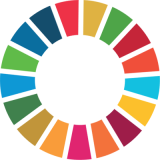Background and issues
Although the SDGs adopted by national governments, NGOs and private companies were closely involved in their formulation. The UN Declaration thus stipulates that countries and all concerned stakeholders must work together to implement this agenda.
Several companies, especially in France, have been quick to appropriate these global goals. Is this appropriation reflected in new commitments undertaken or merely in a repackaging of existing commitments? Are all sustainable development challenges being addressed through ambitious commitments, or just some of the SDGs that are relatively easier to achieve? These are all legitimate questions being raised in particular by civil society, showing that the corporate world must demonstrate transparency to porve that it is not simply taking the easy route of “SDG-washing”.
While international associations began to work on the issue soon after the UN negotiations on the SDGs, national associations have only begun to mobilise recently. In some countries like Germany, as well as at the EU level, there has been a move to make governments accountable for their commitments. However, in other countries, the mobilisation was slow to commence but has picked up pace.
Above all, civil society is not just expected to simply drive the action of governments or companies; it is also being called upon to actively contribute to achieving these goals in partnership with public and private actors.
Objectives
In order to help non-state actors to appropriate the SDGs in an effective manner, IDDRI is studying the initiatives taken by them in different countries with a view to drawing useful learnings for all, and for France and Europe in particular. IDDRI will share these analyses and recommendations with these actors, as with the policy-makers looking to use them.




